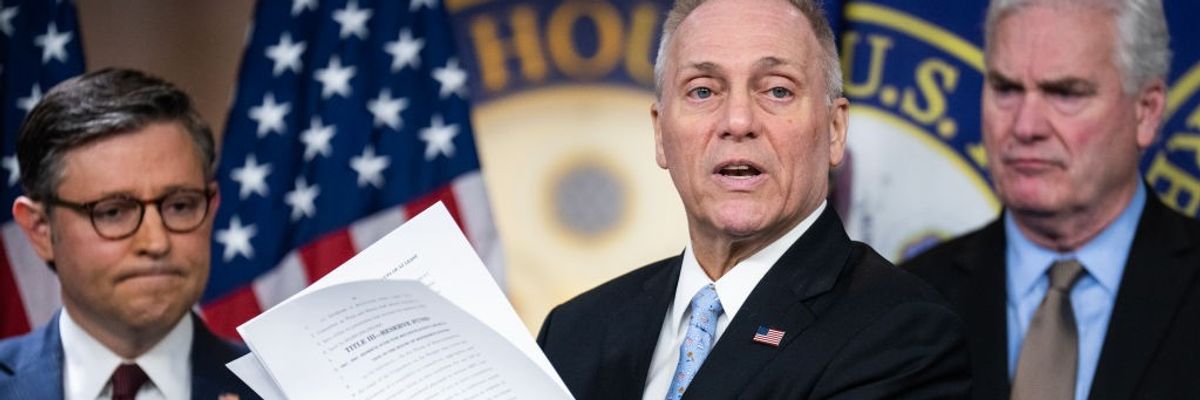At a press conference last week, U.S. House Majority Leader Steve Scalise claimed Democrats are lying when they warn that Medicaid is in the Republican Party's crosshairs.
"The word Medicaid is not even in this bill," Scalise (R-La.) declared, waving the text of a budget resolution that House Republicans went on to pass over unified Democratic opposition.
But an analysis released late Wednesday by the nonpartisan Congressional Budget Office (CBO) makes clear that deep cuts to Medicaid would be required under the House GOP resolution, which President Donald Trump has endorsed.
The analysis, produced at the request of leading House Democrats, shows that Medicaid accounts for 93% of projected mandatory spending under the jurisdiction of the House Energy and Commerce Committee over the next decade, not including Medicare.
That means Republicans would have to cut Medicaid, the Children's Health Insurance Program (CHIP), or Medicare to achieve the $880 billion in spending reductions that the House budget resolution instructs the energy and commerce panel to impose between fiscal years 2025 and 2034.
"This analysis from the nonpartisan CBO confirms what we've been saying all along: Republicans are lying about their budget," said Rep. Brendan Boyle (D-Pa.), the top Democrat on the House Budget Committee. "Their plan would force the largest Medicaid cuts in American history—all to pay for more tax giveaways to billionaires."
According to the CBO, just $135 billion in spending under the House Energy and Commerce Committee's jurisdiction over the next decade would be available for cuts when excluding Medicaid, Medicare, CHIP, and programs that are "budget-neutral with revenues offsetting spending."
That would leave the GOP far short of the $880 billion in energy and commerce spending reductions proposed in the House budget resolution, which still must make its way through the Republican-controlled Senate before the GOP can move ahead with Trump's legislative agenda.
The CBO's analysis comes a day after Trump neglected to mention Medicaid during his first address to Congress of his second term, a decision that one advocate said confirms the president "knows his plan to cut nearly $1 trillion from Medicaid is so deeply unpopular that he would rather sweep it under the rug."
Rep. Frank Pallone, Jr. (D-N.J.), the top Democrat on the House Energy and Commerce Committee, said Wednesday that the CBO analysis "confirms what we've been saying all along: The math doesn't work without devastating Medicaid cuts."
"The reality is the only way Republicans can cut at least $880 billion within the Energy and Commerce Committee's jurisdiction is by making deep, harmful cuts to Americans' healthcare," said Pallone. "Republicans know their spin is a lie, and the truth is they have no problem taking healthcare away from millions of Americans so that the rich can get richer and pay less in taxes than they already do."




